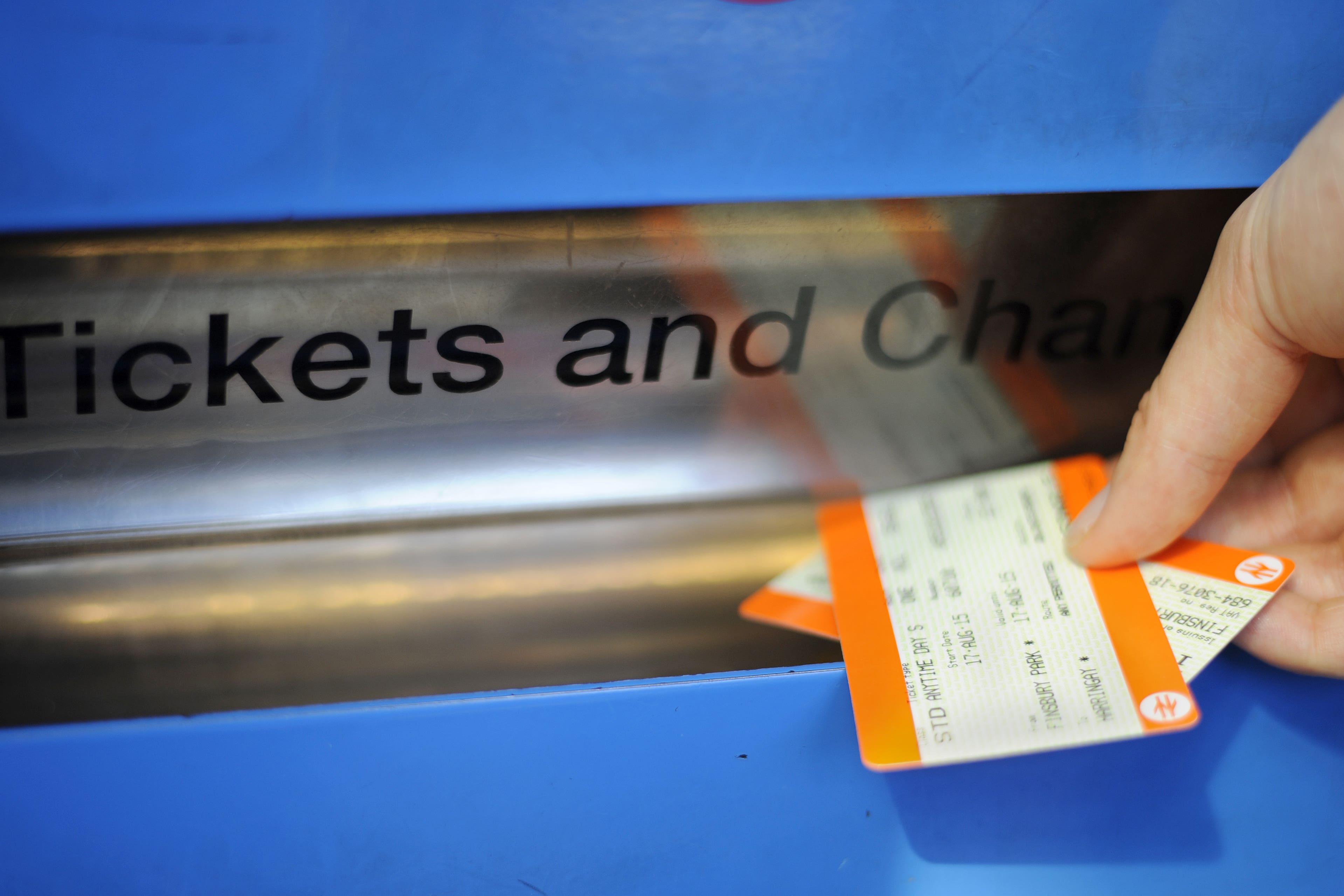Rail fare revenue at just 71% of pre-Covid levels
The Office of Rail and Road said passenger revenue between July and September was £2.2 billion.

Your support helps us to tell the story
From reproductive rights to climate change to Big Tech, The Independent is on the ground when the story is developing. Whether it's investigating the financials of Elon Musk's pro-Trump PAC or producing our latest documentary, 'The A Word', which shines a light on the American women fighting for reproductive rights, we know how important it is to parse out the facts from the messaging.
At such a critical moment in US history, we need reporters on the ground. Your donation allows us to keep sending journalists to speak to both sides of the story.
The Independent is trusted by Americans across the entire political spectrum. And unlike many other quality news outlets, we choose not to lock Americans out of our reporting and analysis with paywalls. We believe quality journalism should be available to everyone, paid for by those who can afford it.
Your support makes all the difference.Revenue from train fares was just 71% of pre-pandemic levels between July and September, new figures show.
Regulator the Office of Rail and Road (ORR) said passenger revenue over the three months was £2.2 billion.
That compares to £3.1 billion during the same period in 2019, when adjusted for inflation.
Some 359 million train journeys were made in Britain between July and September.
Strike action by the railway unions in a row over jobs, pay and conditions took place on five days in the quarter, leading to reduced timetables.
The number of journeys was 80.3% of pre-virus levels.
On Friday, thousands of members of the Rail, Maritime and Transport union (RMT) at Network Rail and 14 train companies will begin the second of two 48-hour strikes this week as the industrial dispute continues.
A spokesman for the Rail Delivery Group, which represents operators, said the ORR’s data “confirms the scale” of the financial challenge the industry faces, and the “pressing need for reform to put it on a sustainable footing”.
Instead of further undermining the recovery of the industry, we need the unions to work with us to deliver long overdue reforms to outdated working practices
He went on: “We want to give our people a pay rise. We are disappointed the RMT leadership has not accepted our very fair offer of an 8% increase in 2022/23 pay packets which could have ended this dispute.
“Instead of further undermining the recovery of the industry, we need the unions to work with us to deliver long overdue reforms to outdated working practices which will improve services and secure the long-term future of the railway and its workforce.”
The RMT rejected the offer within hours of receiving it earlier this month, stating it was conditional on accepting vast changes to working practices, huge job losses, driver-only operated trains on all companies and the closure of ticket offices.